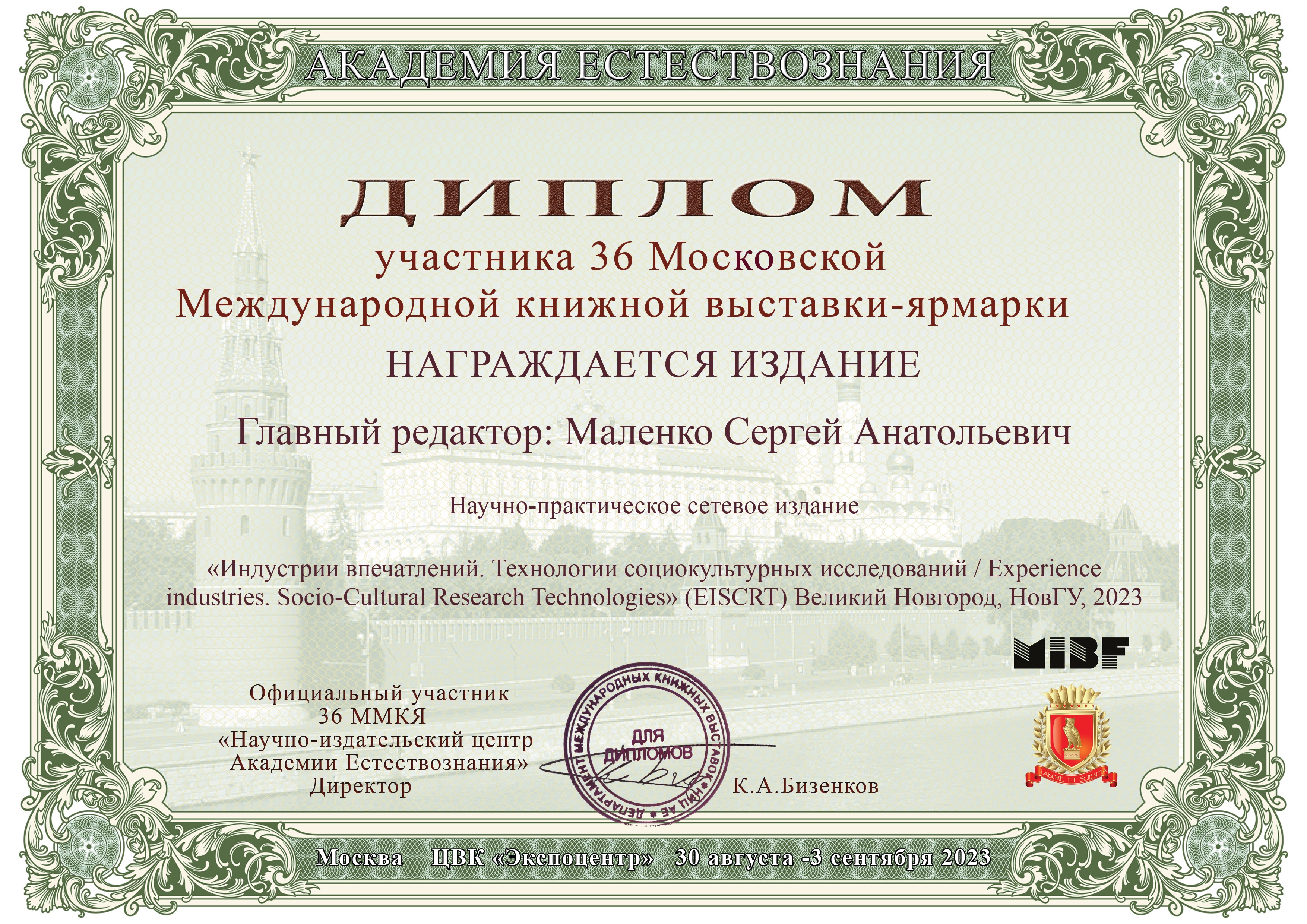Antiplagiarism
1. The journal “Experience Industries. Socio-Cultural Research Technologies” is committed to the implementation of the principles of editorial ethics based on the practice of editing, reviewing, publishing and positioning the authorship of scientific publications, as well as on the recommendations of the Committee of Publication Ethics (COPE).
2. The journal “Experience Industries. Socio-Cultural Research Technologies” focuses on the strict use of the “Antiplagiarism” antiplagiat.ru system in order to detect plagiarism, incorrect borrowings, as well as various methods for bypassing the detection of plagiarism and incorrect borrowings.
3. The editorial board considers fundamentally impossible the practice of:
– directly copying text of other authors without a reference to their authorship, indicating and citing the source, as well as insisting on the citation of any fragments of the used texts;
– any attempts to bypass the detection and uncovering of incorrect borrowings by means of computer scripts of plagiarism fixation, associated with the possibility of paraphrasing, changing the order of words, phrases, sentences and text fragments, as well as the construction of synonymous rows;
– using any other elements of another person’s work (figures, tables, etc.) without clearly positioning the authorship, as well as a reference to the source in accordance with the established rules;
– literal reproducing or paraphrasing one’s own work (self-plagiarism) without proper justification and in amounts exceeding reasonable limits
4. Authors applying for the publication of their materials in the journal “Experience industries. Socio-Cultural Research Technologies”, guarantee that:
– the originality of their works, confirming the fact that they have not been previously published in other publications in the present form, or approximated in content or form;
– their submissions are not reviewed by other editorial boards and do not undergo a peer-review procedure;
– there are no unresolved conflicts of interest with respect to their submissions;
– the publication of materials will not result in the infringement of any possible copyrights; in the case of such infringements, all possible losses will be reimbursed to the publisher. Authors are required to have the permission of the copyright holders to use certain elements of their works.
5. In cases where the material proposed by the author for publication uses elements of earlier publications:
– the author is obliged to make references to earlier works;
– or to reliably motivate the connection of the new work with publications of earlier periods, noting their continuity, novelty and qualitative differences, etc.)
6. The editorial board of the journal “Experience industries. Socio-Cultural Research Technologies” rejects articles with originality lower than 80% as determined by the automatic control system. At the same time, the editorial board may also refuse publication for other reasons that somehow indicate the unoriginality of the publication or the bad faith of its author.
7. In case of disagreement about possible incorrect borrowings and plagiarism, the editorial board is guided by the standards of academic ethics, protects the reputation of authors and takes all cases of plagiarism seriously. In the event of such situations, a system of procedures is used to respond to possible accusations of plagiarism and involve:
– asking the authors of dubious publications for complete information regarding the material submitted to the editorial board;
– requesting information about the submitted material from the direct copyright holders;
– a comprehensive examination of dubious publications, including the involvement of journal reviewers.
8. In case of confirmation of the incorrectness of borrowings (facts of plagiarism), the editorial board
– rejects the proposed material;
– stops interaction with authors accused of plagiarism, as well as with unscrupulous reviewers covering facts of incorrect borrowings.
Identification of the fact of plagiarism in already published articles, as well as cases of duplication of publications, the article is withdrawn (retracted).
9. The editor board does not enter into discussions or debates about cases of possible uncritical borrowing with persons who are not directly related to them.







